Chengguo Lv
Unseen Target Stance Detection with Adversarial Domain Generalization
Oct 12, 2020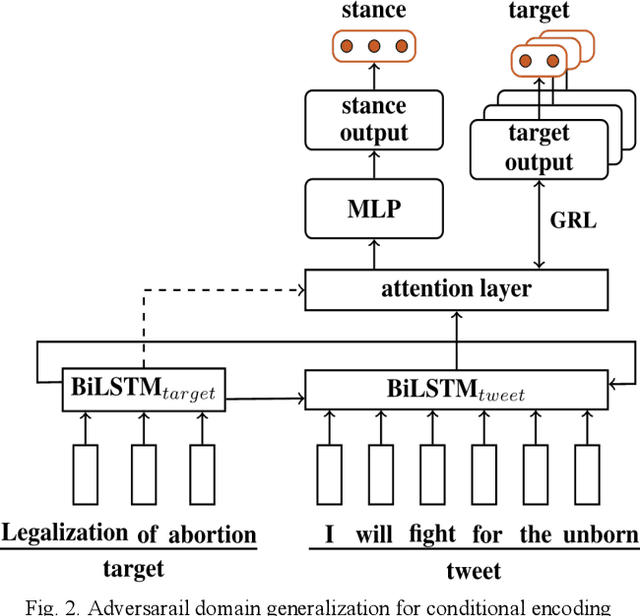
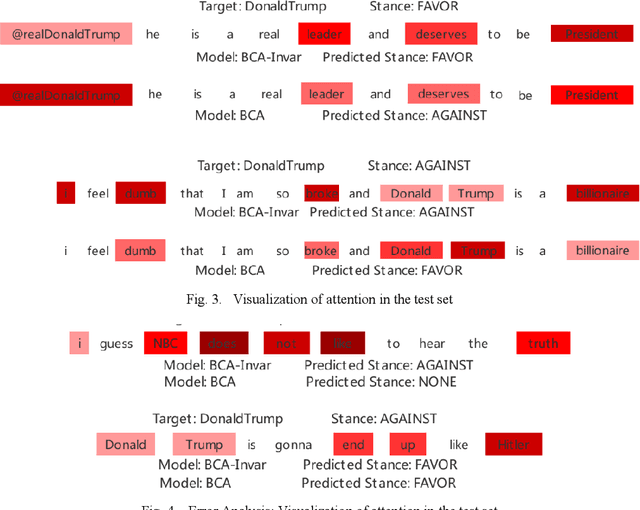
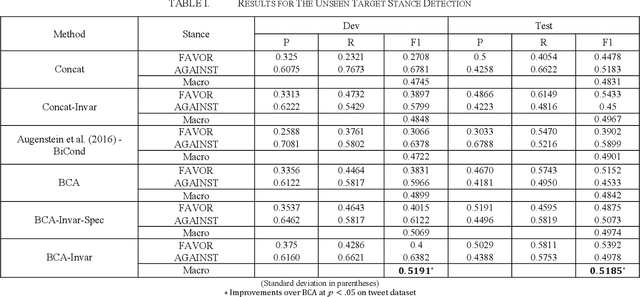
Abstract:Although stance detection has made great progress in the past few years, it is still facing the problem of unseen targets. In this study, we investigate the domain difference between targets and thus incorporate attention-based conditional encoding with adversarial domain generalization to perform unseen target stance detection. Experimental results show that our approach achieves new state-of-the-art performance on the SemEval-2016 dataset, demonstrating the importance of domain difference between targets in unseen target stance detection.
Cue-word Driven Neural Response Generation with a Shrinking Vocabulary
Oct 10, 2020
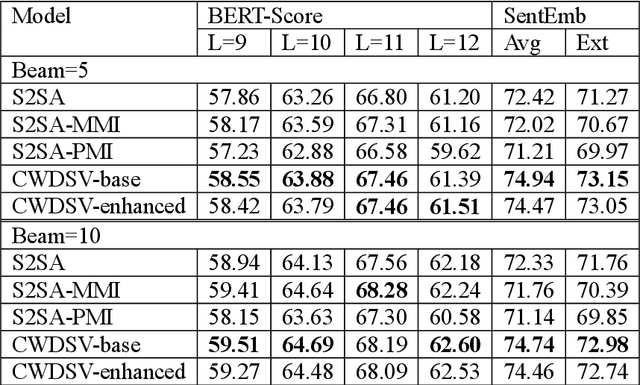
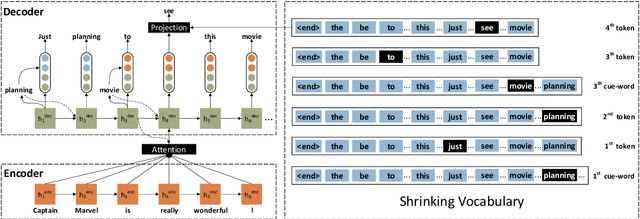
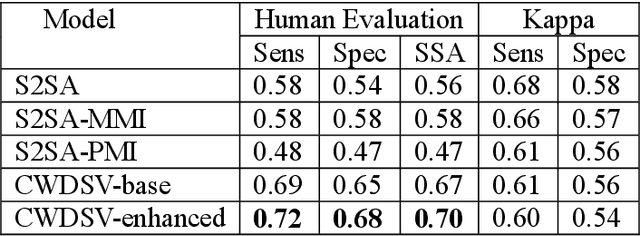
Abstract:Open-domain response generation is the task of generating sensible and informative re-sponses to the source sentence. However, neural models tend to generate safe and mean-ingless responses. While cue-word introducing approaches encourage responses with concrete semantics and have shown tremendous potential, they still fail to explore di-verse responses during decoding. In this paper, we propose a novel but natural approach that can produce multiple cue-words during decoding, and then uses the produced cue-words to drive decoding and shrinks the decoding vocabulary. Thus the neural genera-tion model can explore the full space of responses and discover informative ones with efficiency. Experimental results show that our approach significantly outperforms several strong baseline models with much lower decoding complexity. Especially, our approach can converge to concrete semantics more efficiently during decoding.
 Add to Chrome
Add to Chrome Add to Firefox
Add to Firefox Add to Edge
Add to Edge